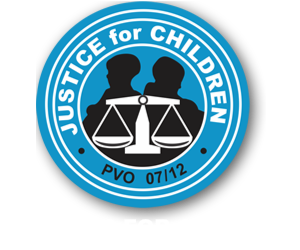OUR HISTORY
Justice for Children (JCT) is a non-governmental organisation which was established in December 2002 as a Trust under Trust Deed Number MA1300/02. The organisation was registered with the Law Society of Zimbabwe on the 26th of February 2004 to provide legal aid to orphans and vulnerable children below the age of 18 years. Its lawyers are registered both with the High Court of Zimbabwe and the Law Society of Zimbabwe. It was later registered with the Department of Social Services as a Private Voluntary Organisation under PVO07/12.
The organisation was formed in view of the rising levels of poverty which were accompanied by escalating legal fees making it impossible for many to access justice. The HIV/ AIDS pandemic also contributed to problems which were being faced by children which included orphanhood, child headed families and denial of child rights in cases of inheritance. This also necessitated support of children as they go through the justice system as children in conflict with the law. Further, through constant interface with the law, the organisation noted that there were various child rights violations that are encountered by children as they try to access justice especially on their own. JCT also realised that there was a gap among children and their communities concerning child protection laws and the functionality of the justice delivery system. In addition, the organisation realised that there was need to participate in the development of existing laws and systems in Zimbabwe especially when it comes to the rights of children in comparison to regional and international laws. To this end the organisation was established to address all these problems through its three departments which are:
- The Legal Aid Department
- The Legal Education Department
- The Research, Advocacy and Lobby Department.
The organisation initially started in Harare, where its Head Office is currently located and later established offices in Bulawayo and Mutare. Currently the organisation has expanded its services to the rural populace in districts which include, Bulilima, Gokwe, Rushinga, Mutasa, Buhera, Mt Darwin, Chinhoyi, Guti, Rusape, Murehwa, Shamva, Mazowe and Plumtree.
ACHIEVEMENTS
Justice for Children was the first Zimbabwean organisation to ensure that children’s legal issues are separated from those of women and the family. The organisation was also able to popularise child laws throughout the country resulting in increased sensitisation thereby leading to the realisation that this is an area of law with its own laws and policies that need to be implemented by different stakeholders in the justice sector. Further through popularisation of child laws, even players in the justice system began to see the need to develop a child friendly system with programs such as the Pre – Trial Diversion System, the Victim Friendly System and JCT has played a role in developing some of the policies that guide the funding of those programs. As a result of its work experience, the organisation further advocated for a section that speaks specifically to children’s rights in the Constitution of Zimbabwe. Through JCT’s intervention the 2013 Constitution is now more in line with both regional
and international laws especially in matters concerning children.
The organisation use strategic litigation in a bid to promote and protect child rights and among its many achievements the organisation celebrated the outlawing of judicial corporal punishment in Zimbabwe in the Constitutional Case of State v Willard Chokuramba CC10/19. The organisation remains very active in building the laws of child protection as it is currently participating in various engagements and consultations in the development of different laws which include the Child Justice Bill, the Marriages Bill, the Amendment of the Criminal Law Code (in particular around sexual offences), the Education Amendment Bill, the Persons with Disabilities Bill, and the Children’s Amendment Bill.
Through the use of the concept of mobile aid legal clinics, the organisation is ensuring that legal
services are brought to the people and are accessible to them in their various communities. Such clinics are available in areas such as Gokwe, Binga, Bulilima and Zvimba amongst others. To support and compliment the mobile aid legal clinics, the organisation has set up the Community Paralegal Model in various communities where community members have been trained to be watch dogs of child rights violations in their communities, which violations should be reported upon identification. The community paralegals are also supported by child advocates working under the Child Law Forum wherein boys and girls are empowered to identify violations that occur to them and their peers at community and at school level. This initiative encourages child participation and ensures that children report to cases the people they trust the most, including other children.
WHERE ARE WE GOING?
Currently the organisation is using its experiences with children in courts and in the communities to build jurisprudence around children and the law with a vision of influencing access to justice at national, regional and international level. JCT envisions further strengthening of the already existing community based access to justice structures throughout Zimbabwe with an aim of ensuring that children can access justice at the community level.
